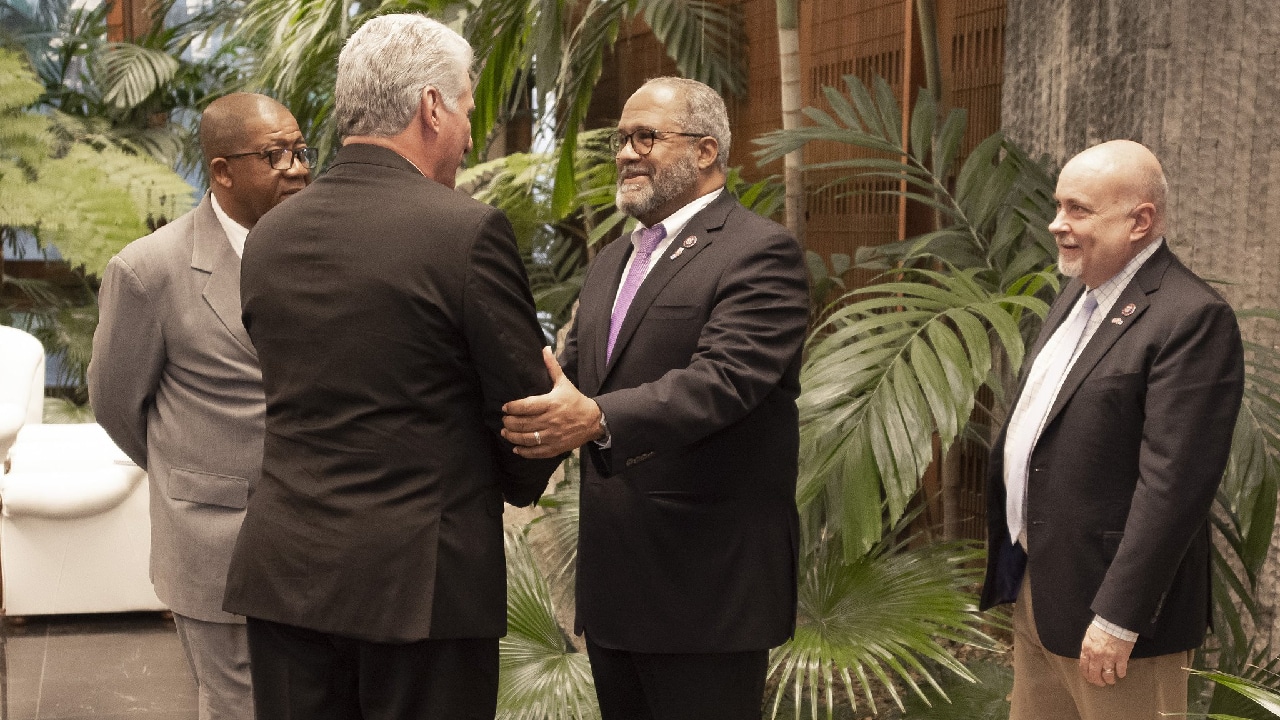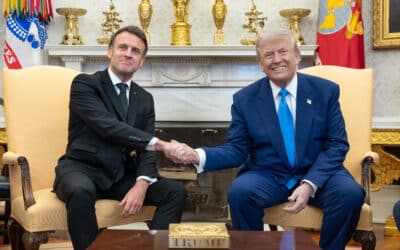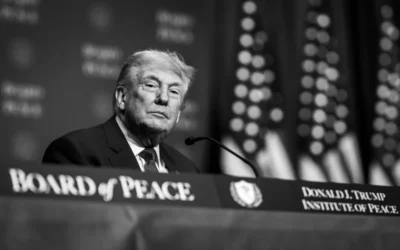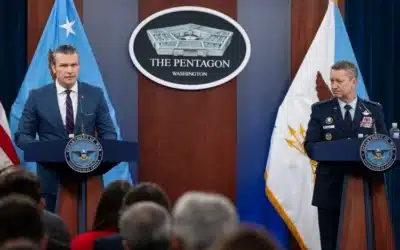A delegation from the Congressional Progressive Caucus has traveled to Havana to meet with the Cuban president, holding a rare high-level sit-down with officials from the heavily sanctioned island, which remains under a Cold War-era trade embargo.
Representatives James McGovern (D-MA), Mark Pocan (D-WI) and Troy Carter (D-LA) met with Cuban President Miguel Díaz-Canel in Havana on Sunday, the Associated Press reported. Commenting on the visit, President Díaz-Canel said the two sides discussed “our differences and topics of common interest,” and suggested that he urged the United States to drop its decades-old economic penalties against Cuba.
”The shared will to improve bilateral relations was ratified. I expressed the need to put an end to measures that harm the Cuban population,” he added.
In the wake of its socialist revolution in 1959, Cuba remained a client of Moscow throughout much of the Cold War. Washington first sanctioned weapon sales to the island in 1958, as fighting raged between the government and forces loyal to Fidel Castro, and later imposed a trade embargo after a victorious Castro ordered the nationalization of all American-owned businesses in Cuba.
In February 1962, Washington extended its blockade to include nearly all exports. Just eight months later, the US and the Soviet Union nearly kicked off a nuclear exchange over Russian strategic missiles deployed on the island.
While President Barack Obama took a number of steps to normalize relations with Cuba near the end of his second term, the Donald Trump administration would later walk back nearly all of those détente policies. In justifying the U-turn, Trump pointed to American diplomats in Cuba who were allegedly targeted with a mysterious weapon that caused a wide variety of symptoms. The US government dubbed the so-called disease the ‘Havana Syndrome,’ but to date nobody has offered a persuasive explanation for the cause of the strange ailments. Though some dramatic reports suggested a ‘microwave weapon’ could be causing the symptoms, recordings said to capture the sound of the ‘weapon’ in use were instead identified as the mating call of native crickets.
Joe Biden was expected to adopt the Cuba policies of his former boss, but the White House has been slow to return to diplomacy with Havana. In July 2021, the US imposed additional sanctions on the island over human rights abuses committed by the government. While the Cuban state is repressive toward dissidents, some of the worst rights abuses in the country have occurred at the American-run prison at Guantanamo Bay – once deemed “the legal equivalent of outer space“ for its lawlessness. The US military occupies a portion of Cuba and has operated the infamous torture prison for two decades.
In June, the White House relaxed some sanctions on Havana, signaling some loosening of the embargo. However, in a United Nations vote held last month, the US pressed to continue the blockade against Cuba. Recent talks between Washington and Havana have focused on slowing Cuban immigration to the United States, and it remains unclear whether the latest visit by Democratic lawmakers will result in any further easing of existing sanctions.

































